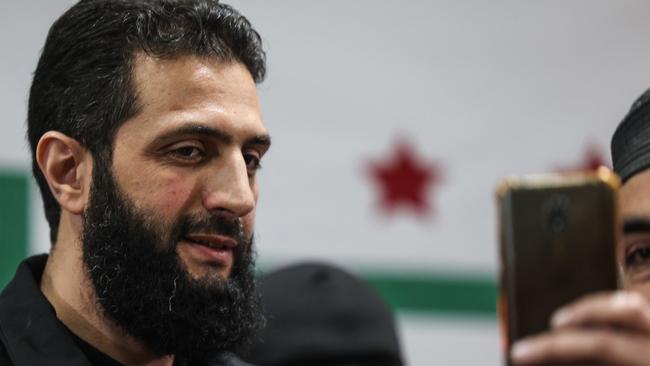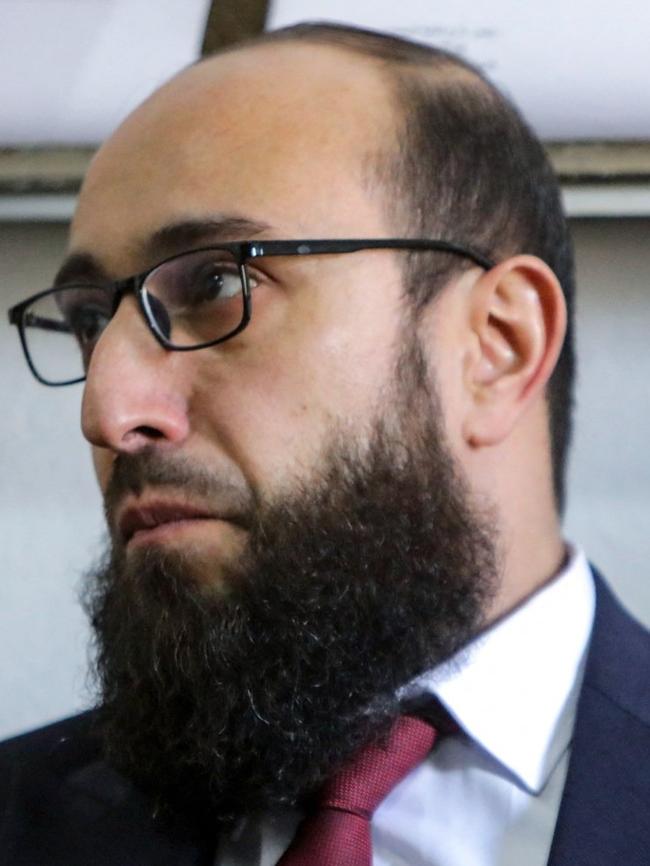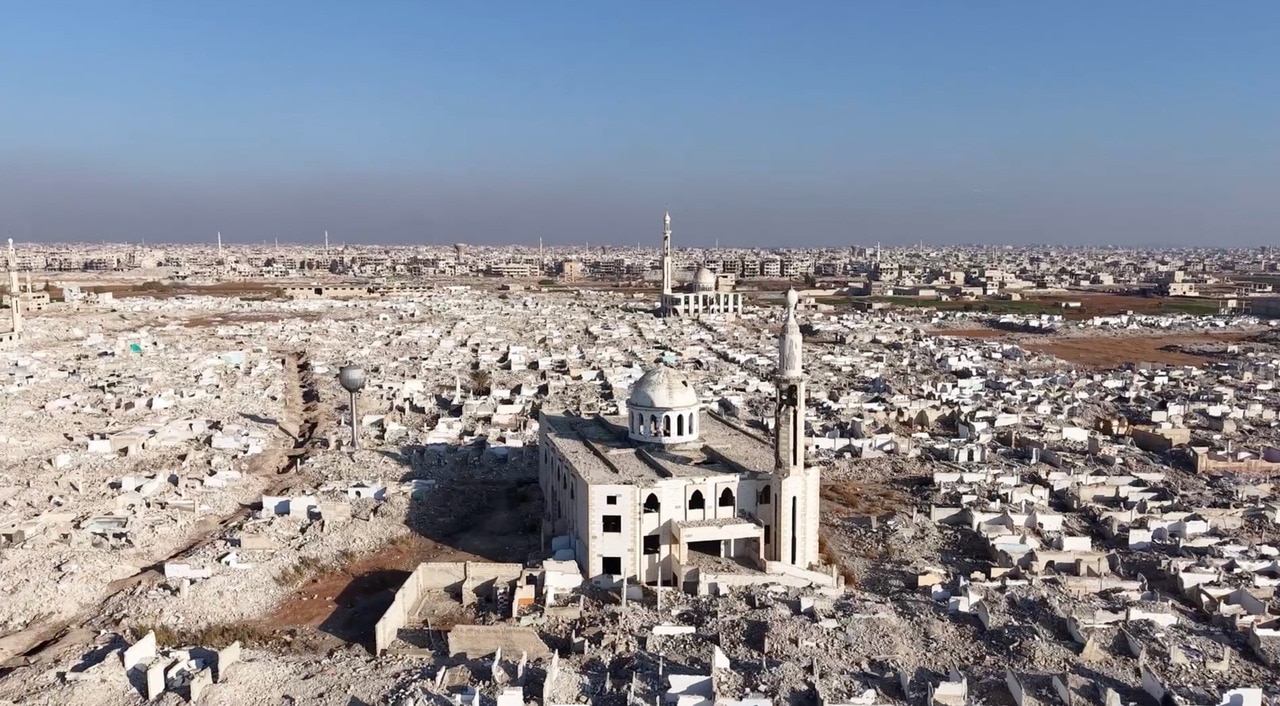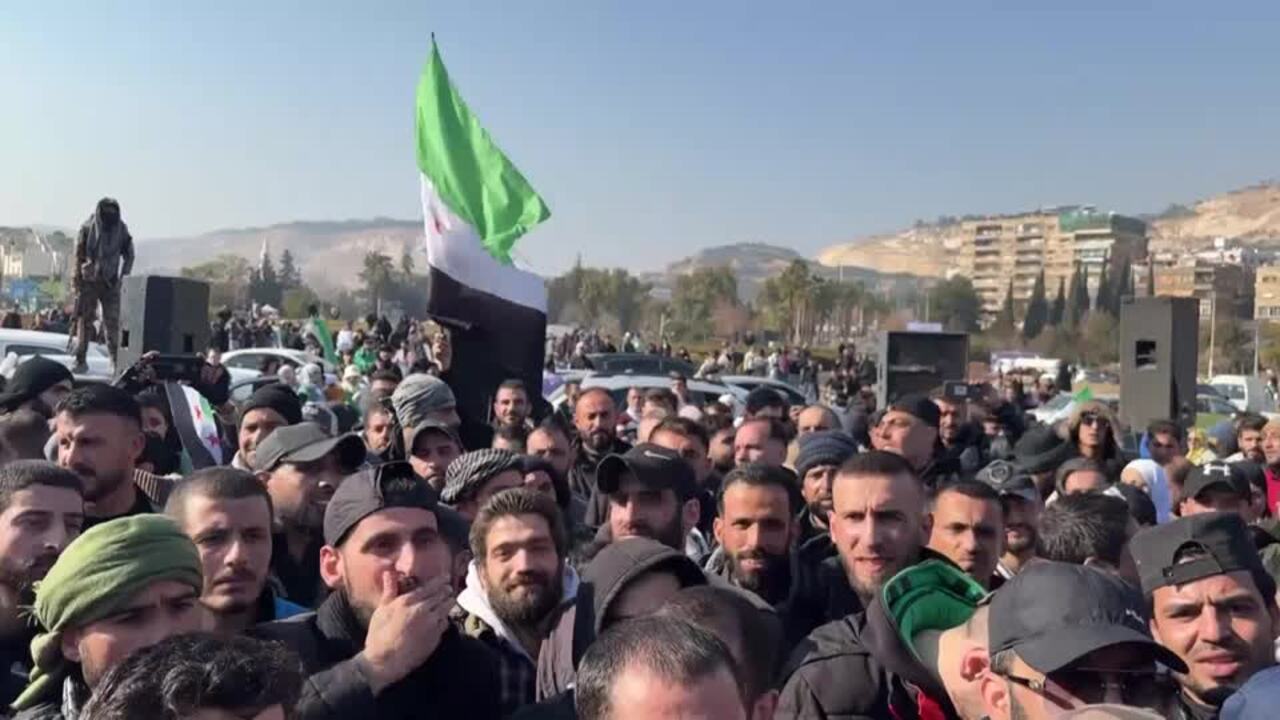Fears for Syrian women as Islamist hardliners take key roles
Footage of the execution of two women by al-Qa’ida commanders who are now in Syria’s new government have raised concerns about the new leader’s plans for the country.

In a video captured on a mobile phone, a middle-aged woman pleads with a bearded man to see her children one last time. He steps aside and motions to a gunman, who forces her on to her knees and shoots her in the back of the head. A crowd of gunmen yell: “God is great.”
In a second video, the same man reads out a death sentence for another woman accused of prostitution. He is Shadi al-Waisi, who was a jurist working for Jabhat al-Nusra, al-Qaeda’s Syrian branch that controlled the northwestern city of Idlib in 2015 when the videos were filmed. In December he became Syria’s new justice minister.
Waisi was one of several appointments by Ahmed al-Shara, the former al-Qaeda commander who led rebels in overthrowing Bashar al-Assad’s regime, that have heightened concerns about what the new Islamist leadership intends for the country.
Others include Anas Khattab, the new intelligence chief and a long-time Shara aide, and Murhaf Abu Qasra, who served as Shara’s military chief after the split from al-Qaeda. The sole female member of the new administration, Aisha al-Dibs, is in charge of women’s affairs but believes that women should “not go beyond the priorities of their God-given nature”.
The appointments — and statements by Shara that a transitional period could last for five years before elections — have begun to sink in among the country’s political and rights activists as the euphoria following Assad’s defeat wears off.

“They say that the liberator gets to decide,” said one veteran Syrian opposition leader. “What type of twisted logic is this? Their actions thus far are evidence they don’t want to share power. If they fail, Syria could head to civil war. It’s in all of our interest for this to succeed.”
Shara, formerly known as Abu Mohammed al-Jolani, and his group of disciplined fighters, now known as Hayat Tahrir al-Sham (HTS), have sought to persuade Syrians and the international community that they have changed. A senior member of his group told the Syrian fact-checking group Taakad that the execution footage that resurfaced this week “reflected a phase we have surpassed”.
Women’s rights campaigners remain wary, and not just of the group. In the city of Homs, which has become divided along sectarian lines between the majority Sunnis and Assad’s Alawi minority, one rights group cancelled a protest for women’s rights after pressure from residents.
Shara has insisted that minority and women’s rights will be respected and HTS — which is designated as a terrorist organisation by the United States and Britain and attracted thousands of foreign jihadists during the 13-year civil war with Assad’s regime — harbours no intention of conducting attacks abroad. In interviews five foreign fighters, including two Britons, insisted that they had undergone a genuine ideological change and that Shara had always been a pragmatist.
“There’s a lot of pragmatism involved,” said one Briton who fought against Assad’s regime. “[Shara] wanted to fit into the mainstream [Muslim world]. A lot has changed, ideologically.”
A Maldivian Islamist fighter, when asked whether he would be happy with Shara not imposing Islamic law, said: “We have a government here. It is up to them to implement the law.”
Such a shift could offer hope to many Syrians, as well as others in the region and in the West, after enduring the cruelty and intransigence of Assad’s regime, which led to a brutal crackdown and a civil war that claimed 500,000 lives. The US and Britain rushed to send delegations to Damascus to meet Shara, while countries in the region, such as Saudi Arabia, have already begun sending aid to Syria.
Many who met Shara have walked away with the impression that, whatever his background, he was no longer a jihadist ideologue. But despite the charm offensive, missteps by his administration and fighters since he took over Damascus have fuelled those fears.
In the countryside, zealots burnt down a Christmas tree, sparking Christian protests. The HTS apologised, saying it had arrested the perpetrators.

Obaidah Arnaout, an administration spokesman, told an interviewer that women were not fit for some roles, such as in the military, prompting protests from rights activists. He later met with a delegation of women representatives and apologised.
Last week, the education minister changed textbooks to give them a more Islamic flavour and remove Assad regime propaganda. He backtracked after criticism. In Homs and other cities, HTS and local Sunnis have targeted Alawis — the sect of Assad and many of his leaders — accusing them of involvement in the regime’s crimes.
During a visit to the city after two days of clashes with Alawi protesters and gunmen, masked HTS soldiers and their local supporters had set up checkpoints and sealed off some Alawi neighbourhoods as others conducted raids looking for weapons.
In one street of mixed Alawi and Murshidi residents, shots rang out near Hassan’s apartment as he prepared to take his family to a safer home outside the city. Murshidi is an off-shoot religion of Alawi. Like many Alawis and Murshidis, Hassan had fled Homs as Shara’s forces bore down during their lightning offensive that ended Assad’s rule.

He returned days later, believing that their fears were overblown. “The Alawis are scared that the HTS will strip them of their weapons while the Sunnis keep theirs,” he said.
The sectarian clashes and crackdown, which led to the deaths of more than a dozen HTS members when they were ambushed trying to arrest an Assad regime figure, have been accompanied by footage showing the fighters humiliating and beating purported Alawi former regime figures, prompting the US envoy Daniel Rubinstein to express his government’s concern during a visit to Damascus last week, said an official familiar with the matter.
International pressure will be crucial to ensuring the transitional period does not turn into another long-lasting dictatorship, opposition activists say, although many concede that Shara, when he was in charge of Idlib, allowed protests and tended to negotiate with the non-Islamist opposition. However, he cracked down on more extreme Islamists who challenged his legitimacy.
“We do fear that tyranny could return,” said Yasser al-Aiti, a long-time opposition leader who was jailed under Assad and now leads the conservative New Syria Movement. “That [Shara] makes his arrangements with other countries and because people want safety and peace and food and drink, so tyranny returns, only a religious form. We do fear this and the guarantee against that happening is that people from now start demanding elections.”
The Times





To join the conversation, please log in. Don't have an account? Register
Join the conversation, you are commenting as Logout